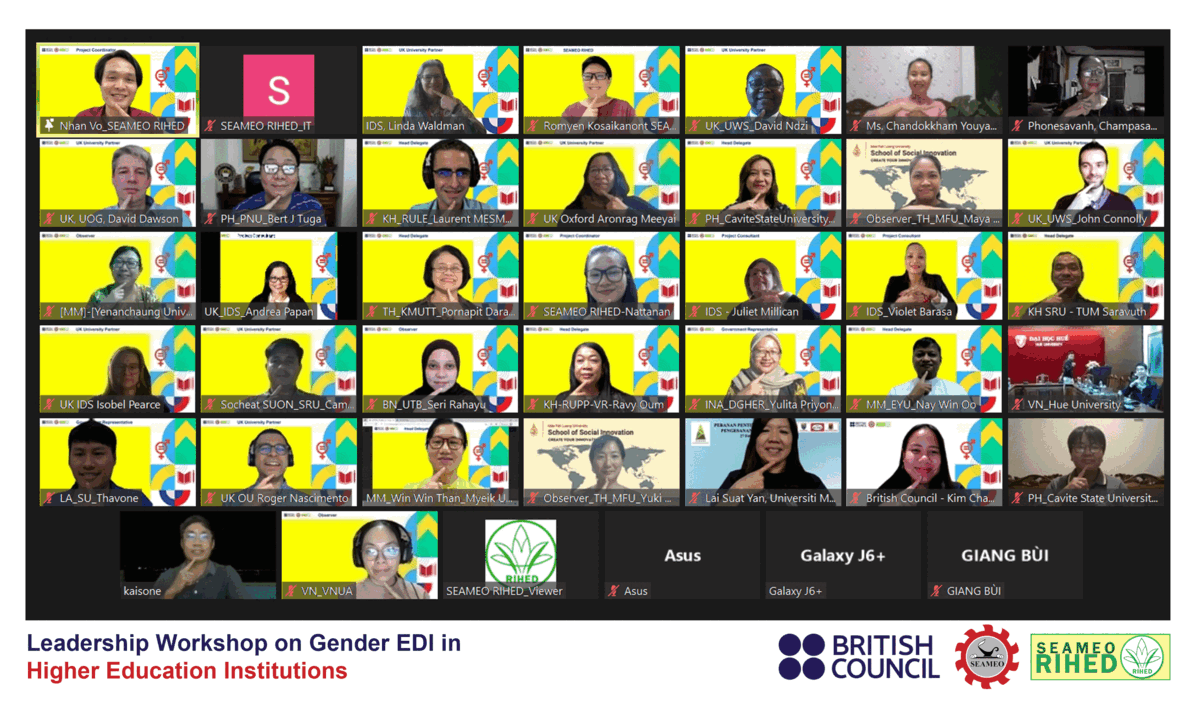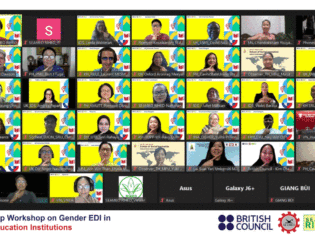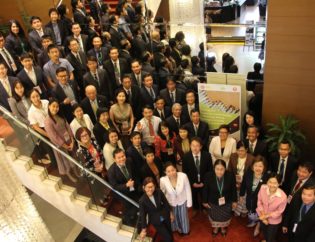

Innovative Approach to Gender EDI Learning
Bangkok, 21 March 2022 - On 7-9 March 2022, SEAMEO RIHED, in collaboration with the British Council and the Consultant Team from the Institute of Development Studies, University of Sussex, leveraged the power of virtual space and weaved an inter-regional learning between Southeast Asian and UK university leaders in the online Leadership Workshop on Gender EDI in Higher Education Institutions, employing participatory and peer learning approaches.
The participants were a combination of management-level leaders from 35 universities in 11 SEAMEO Member Countries, covering both countries in the GMS region (Laos, Cambodia, Myanmar, Thailand, Vietnam, Timor-Leste) and maritime countries in ASEAN (Timor-Leste and Brunei Darussalam, Indonesia, Malaysia, the Philippines), and 5 universities from the UK, comprised of University of Sussex, Aston University, University of Gloucestershire, University of the West of the Scotland, and University of Oxford. Additionally, the government representatives participated in sharing of policies, challenges, tools, and initiatives for gender EDI in over 11 countries.
Complexities of Gender EDI Challenges
With a focus on shared understanding about gender EDI among the participants, Dr. Linda Waldman engaged learners in together establishing a conceptual overview of the complexities of gender EDI challenges. It was shared that structural occupational, organizational, interpersonal, and individual factors were potential causes for women’s limited participation and advancement in higher education leadership, particularly in STEM. The Workshop also highlighted the multifaceted nature of the challenge, and that gender inequity should not be considered merely an individual problem, but a challenge for the entire society.
The region as diverse as Southeast Asia have experienced different challenges in gender EDI. A participant from Laos shared that even though his institution had in place a policy or measure in promoting women’s presence in leadership role or research programmes, the women abstained themselves from taking up the chances, sometimes because of their strong association of leadership with masculinity, and sometimes their own limited academic capacity. This was also the case in many other Southeast Asian countries. Meanwhile, another Malaysian participant shared the lack of structural support towards academic female staffs with children.
Add to this the gender equity and exclusion is deeply intertwined with other marginalised categories including race, class, and location. In Myanmar, for example, the gender inequity is reported to affect mainly women in rural areas where gender norms still largely dominated.
When combined with diverse cultural and political backgrounds of the Southeast Asian region, the situation of gender EDI challenges greatly varies. Each participating country stands at different levels in terms of gender EDI achievements.
In some countries, regulations and formal body are established as main instruments to ensure women participation in leadership roles and research careers. Some other countries still need to work harder on mainstreaming gender EDI among the public and high-level decision makers in higher education institutions. The latter was clearly reflected in a Malaysian female professor’s account of her struggle in getting approval for her gender studies program from both university and government body decision makers.
Same Goal, Different Paths
In many countries, the presence of tools, regulations or policies is not yet considered sign of gender EDI success. In the UK, for instance, even though paternal leave is imposed in some universities, not many male staffs use it due to their adherence to traditional culture and mindset of women’s main responsibility in child raising. The challenge was also shared among the Southeast Asian countries with gender EDI policies. To some extent this implies that there’s no standard success formula to gender EDI challenges.
To align with the given nature of gender EDI challenges, the SEA-UK Leadership Exchange Program is designated as the last activity of the Project. With a catalyst grant from the British Council, each of the 5 UK universities can design and implement an exchange programme customised to their areas of interest in gender EDI, and the diverse contexts and priorities of the Southeast Asian region. A group of 7-8 universities from Southeast Asia will then be matched to different programmes according to their context and background.
Ways Forward as a Region
This upcoming Exchange Programme is set to kick off a network between Southeast Asia and the UK in continual learning and exchange of gender EDI challenges and practices, through which participating Southeast Asian universities could come up with a tailor-made approach to their own challenge, and set out on their individual journey towards more equitable, diverse, and inclusive leadership in higher education.
To maximise the collective learning effects, the Project is planned to end with an online Post-exchange Forum where both Southeast Asian and the UK leaders will gather to share and consolidate their lessons from the Exchange Programme for further improvements in their own gender EDI practices. It is also hoped that this peer learning session will help deepen and sustain this inter-regional learning network as long as gender EDI remains regional challenges.
As mentioned by Dr. Linda Waldman in the beginning of the workshop, “There’s no easy tick box to solve gender EDI... It’s a journey”.
For more information on upcoming activities and the Project on gender EDI and leadership in higher education institutions in Southeast Asia, please visit: https://rihed.seameo.org/

